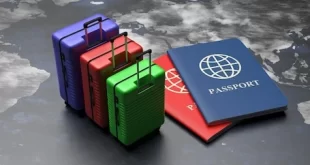While condemning two Bhartiya Janata Party (BJP) officials for making derogatory remarks against Islam and the Holy Prophet (peace be upon him), the US State Department on Tuesday also underlined the importance of its bilateral relations with India.
Analysts in Washington also noticed a similar approach — condemning the offensive remarks while preserving bilateral ties — in reactions from some Muslim and Arab states.
“India’s Muslim partners — especially in the Gulf — value their ties with India,” said Michael Kugelman, deputy director of the Asia Programme at the Wilson Centre in Washington. “So, there are limits to how far they’ll go in retaliating for the recent anti-Muslim comments.”
Noting that India too values its partnership with these Arab and Muslim states, he added: “They will not want to imperil their ties with India.”
The official also said that Washington “regularly engages with Indian government officials at senior levels on human rights concerns, including freedom of religion or belief,” and “encourages India to promote respect for human rights.”
The official was referring to the statement US Secretary of State Antony Blinken made recently in New Delhi, saying: “The Indian people and the American people believe in human dignity, in equality of opportunity, the rule of law, and fundamental freedoms, including freedom of religion and belief.”
Such beliefs, he said, were ‘fundamental tenets of democracies like ours, and our purpose is to give real meaning to these words and constantly renew our commitment to these ideals.”
The statement, as noted by analysts, shows how Washington values its ties with India, which enjoys a key position in its efforts to counter China’s growing influence in Asia.
As Tanvi Madan, a senior scholar at the Brookings Institution, points out,”both India and the US do share an interest in managing China’s rise. Neither would like to see what some have outlined as President Xi Jinping’s vision of Asia, with a dominant China and the US playing a minimal role. India and the US recognize that China will play a crucial role in Asia — it is the nature of that role that concerns both countries.”
In her book, Fateful Triangle, Tanvi Madan shows how China shaped US-India relations during the Cold War. She argues that the desire to offset China brought the two countries closer together in the past, and could do so again.
Another research paper by scholars David Moschella, and Robert D. Atkinson argues that “India is an essential counterweight to China — and the next great US dependency.”
But, Mr Kugelman noted, most Muslim countries were careful in criticizing India as they did not want to strain their relations with New Delhi. Saudi Arabia welcomed New Delhi’s decision to suspend one of the two spokespersons.
Mr Kugelman noted that “India benefits from its own clout, which it will wear as a shield to limit fallout.”
But he warned that New Delhi “has been playing with fire by pursuing deeper ties with the Muslim world even while doing little to rein in growing anti-Muslim rhetoric” at home. “Events of recent days bear this out,” he added.
 Pakish News We are an interactive media group that here a purpose to update users with the latest information. Our mission is to give you knowledge not only about your surroundings. We will also update you around the Globe.
Pakish News We are an interactive media group that here a purpose to update users with the latest information. Our mission is to give you knowledge not only about your surroundings. We will also update you around the Globe.



